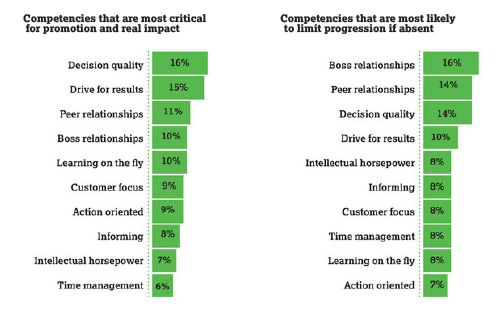by Charles Plant | May 23, 2012 | Management
Why is it that so many CEO’s with bad leadership skills can continue to exist in organizations? The problem often comes down to a board of directors not doing its job properly.
The board has two jobs, to hire and fire the CEO and to comment on strategy. A board that doesn’t get feedback on a CEO’s leadership skills isn’t doing its job.
It can’t only look at results but must look at leadership skills through such things as 360s to ensure that the CEO’s soft skills are measuring up. Developing and maintaining effective leadership skills is an ongoing process that must be worked on continuously in a conscious manner and must also be evaluated formally on a periodic basis. Without conscious effort to develop and evaluate leadership skills, we’ll be stuck with a bad bunch of bosses.
by Charles Plant | May 22, 2012 | Management
Futurestep has released an interesting study and I’m picking it apart bit by bit. One thing that I found fascinating was a comparison between the things that get you promoted versus the things that will limit your promotability. The following chart shows the competencies most critical for promotion versus the ones most likely to hinder promotion. It found that you get promoted for decisions and results but held back for bad relationships. For those of you who focus on getting results, your good decisions and drive for results will only work so far. Eventually your bad relationships will stall your career.

by Charles Plant | May 16, 2012 | Innovation, Management

Many companies are extolling the benefits of teleworking but to my mind, it’s just an excuse to save money. I don’t believe that you can innovate at a distance, form an effective team at a distance, or lead from a distance. certainly you can manage from a distance but leadership of people on a day to day basis requires an emotional connection.
While you might be able to maintain an emotional connection at a distance, I don’t see how you can create one. Without an emotional connection, you are only managing, not leading remote workers.
The point was driven home in a recent HBR article by Walter Isaacson on Steve Jobs. In the article, Jobs is quoted as saying ” There’s a temptation in our networked age to think that ideas can be developed by e-mail and iChat. That’s crazy. Creativity comes from spontaneous meetings, from random discussions. You run into someone, you ask what they’re doing, you say ‘Wow’ and soon you’re cooking up all sorts of ideas.”
by Charles Plant | May 15, 2012 | Management
Dan McCarthy has written an excellent blog on the 6 passages of leadership and management. You can find the blog here. What makes this blog particularly good are not the passages per se but how he differentiates what a manager does from what a leader does at each stage of passage in rising up within an organization. It shows how even someone who does not manage people can be a leader by setting a personal vision and being motivated to follow that vision.
by Charles Plant | May 14, 2012 | Management, Video
It is perhaps both the most needed and least understood skill in business, that of emotional intelligence. James Standen’s perspective is especially interesting given his engineering background.
by Charles Plant | May 11, 2012 | Management, Video
I gave a talk recently at MaRS about seven things a manager needs to do to become a leader. If you have too much time on your hands, you might consider watching it.


